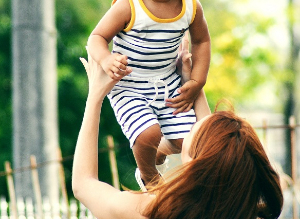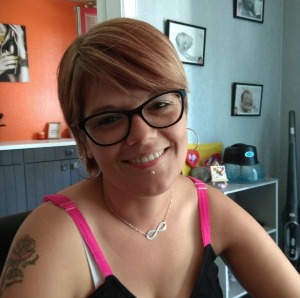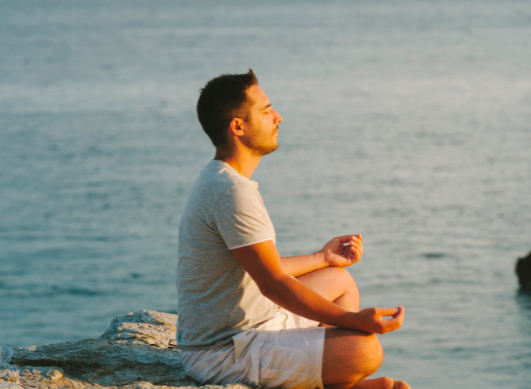How to explain a chronic condition to children and adapt your daily life to fibromyalgia?
Published 5 Aug 2019 • By Louise Bollecker
Jennifer, 29, is a member on Carenity France and a mother of three young children. Diagnosed with fibromyalgia, she tells us how she coped, despite the treatments and disruptions in her daily life caused by the disease.

When did you first experience abnormal symptoms? Which ones?
I experienced the first symptoms all of a sudden in April 2018. Suddenly, I couldn't get up from my bed. I had very intense pain in my arms, legs, back, neck and neck and I felt paralyzed. I was very scared and contacted my doctor who came to see me.
How did your diagnosis go? Did you have to see several doctors before you learned that you had fibromyalgia?
My general practitioner sent me to undergo radiology of all my limbs and blood tests. She sent me to a rheumatologist for a second opinion and the rheumatologist was in agreement. I had to do the tests and blood tests. I saw a doctor at the pain centre in Strasbourg and I tested a lot of medicines until I found the one that worked best to calm my attacks of pain.

How did you feel when you were diagnosed?
I felt a lot of things: sadness, stress, and I had a lot of doubts about this diagnosis. I read on the Internet what it was because I had never heard the name of the disease before. At the pain center, I was even told that it was not a disease. I didn't trust the doctor at the clinic because all the tests I had, like x-rays and blood tests, didn't work: everything was apparently "fine" while I was in horrible pain.
>> The diagnosis of fibromyalgia as told by the Carenity members
How did your loved ones react? Did they support you?
Yes, my spouse for 15 years, my children... even the smallest of 4 saw that something was not normal concerning his mother. My friends also supported me and especially my best friend Marion. I owe her a lot because she was with me from the very beginning of all this pain and never left me out or rejected me because of my illness or cancelled plans. Several times, I had promised to see her and I cancelled at the last minute because I was very ill.
What treatments do you follow for fibromyalgia?
I am on antidepressants, painkillers, and as far as pain is concerned, I have tried anti-inflammatory drugs and all kinds of medications. The one that helps me the most is nefopam, either on a sugar cube or by injection given by a nurse.
Do you have any other tips for pain or stress?
Yes, to breathe calmly and measuredly. The thermal cures I do once a year are also very effective. It's a program they set up: "18 days for fibromyalgia", where I met some great people. I also tried sophrology. Today, I have embarked on cellular health with products based on spirulina, a powerful antioxidant. I haven't been consuming them myself for long, but it's already doing me a lot of good. It is also to avoid taking the heavy drugs prescribed by my general practitioner.
Has the disease had an impact on your professional, emotional or social life?
The disease has had an impact on my social life. At the very beginning, I had withdrawn into myself and I didn't see many people, family or friends anymore. The onset of the disease was the worst time for me. I was having anxiety attacks all the time, I couldn't handle anything. The professional side was not imacted as I was on maternity leave.
You are the mother of three children, how old were the when you were diagnosed? How did they react to your illness?
My eldest son was going to be 12 years old. For him, it was fine, he's mature and he quickly realised that his mother had a problem. I explained the disease to him in general terms. My daughters, who was 7 years old and 3, was very sad to see me so distressed and stuck in my bed. They were often next to me for hugs. My 7-year-old daughter asked me, "Mom, do you want a massage? Maybe it'll get better after!". I had to say, "No, darling, you can't touch my body because it hurts too much everywhere."
On a daily basis, how do you manage your children while being sick (childcare, fatigue, etc.)?
I don't work, I manage the house, the 3 children, school and everything that goes with it, such as extracurricular activities. Sometimes the two little ones missed the gym because I didn't have the strength to take them. Often I would find a friend to run the school - things I would never have asked before. Now I have to ask for help. My children were very cooperative right away. They let me sleep as soon as the fatigue phase is there. The worst part is when you look out the window, you see the sun and you think to yourself: "pfff, you have children, they could play outside, walk around, play... and no, you can't get out of bed!" I looked at my children and cried for hours because of the simultaneous sadness and anger.
What advice would you give to a newly diagnosed person?
That they must be very brave. When you are suffering from fibromyalgia, you must talk about it: it is not complaining, it is sharing the burden and the pain. After a year, I still have trouble accepting the word "illness" but it will surely come. So yes, I would say to a person with fibromyalgia that you have to talk about it and that I am here to share their fears. Be brave and stay as positive as possible!
Many thanks to Jennifer for her sincere testimonial! Feel free to comment below to tell your own story or simply to provide your support.
2 comments
You will also like

Adenomyosis and Fibromyalgia: "I just couldn’t face being told “everything is fine” or “normal” again!"
21 Jun 2023

 Facebook
Facebook Twitter
Twitter



